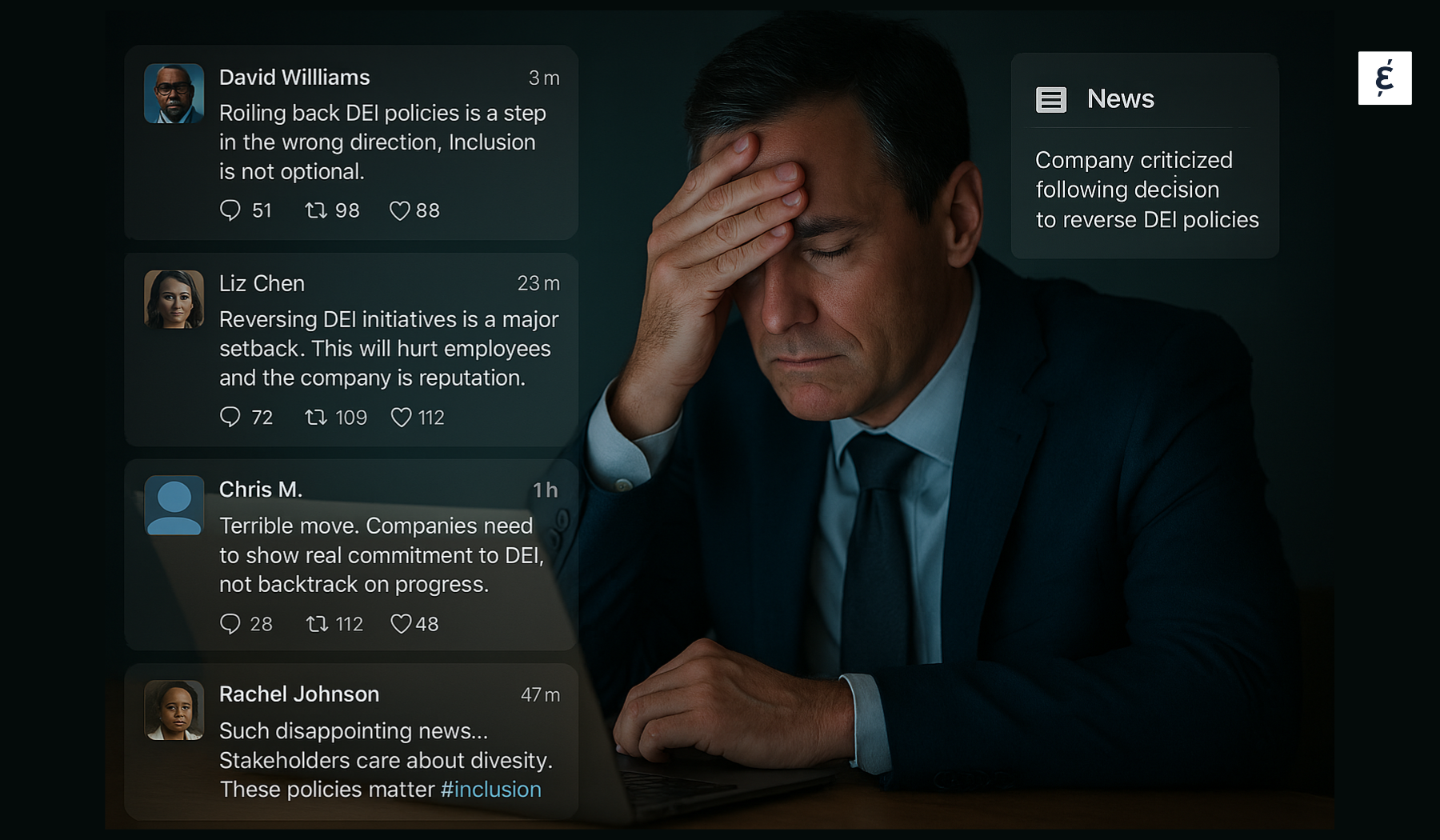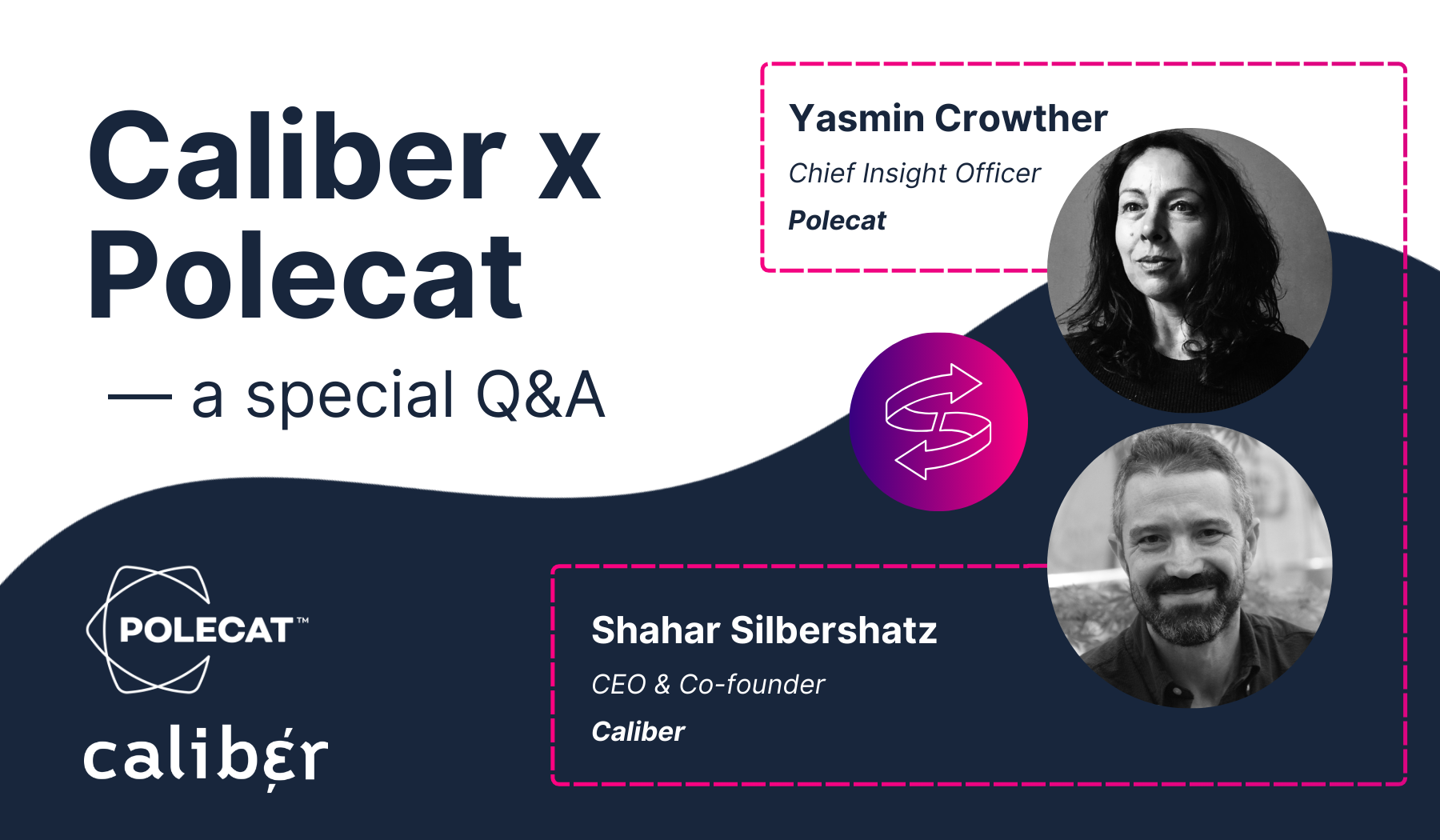

Management can be wonderful. When you manage something, you’re trying to achieve a specific goal. Your actions become guided by your ultimate objective, and the approach is often rational, measured, and cost-effective. But when it comes to relationships, is management the right approach?
Would you say you manage your partner? Some might joke that that’s what their significant other does, but most healthy relationships don’t grow out of KPIs, customer journey charts, or quarterly satisfaction surveys (though many could probably benefit from a “how are we doing?” chat every now and then).
We don’t manage our partners because we know that our personal relationships are not about an exchange or manipulating perceptions. Most people would probably define stakeholder management as just that: changing perceptions, influencing behavior, and improving our image. But we would never think or speak in these terms of our personal relationships.
Of course, a company can (and should) manage its stakeholders. It should know them, monitor them, strategize about them, and make plans that involve them – but ‘stakeholder management’ should not be the only approach, and it should not be the first approach. Rather, stakeholder engagement should.
Engagement is about curiosity. About nurturing a relationship rather than achieving a short-term goal. You should put in charge of the process people who actually like to engage with people, and you should probably think about stakeholder relations like your mother would.
As a kid, I never understood why my mom worried so much about what the neighbors thought. Or why it was very important to invite people back, or why a lot of little trivial details mattered a great deal. But what you can afford to ignore as an aspiring teenage rebel is not advisable as a serious company.
My mom never formalized or spelled out her advice, but there was no mistaking the lessons. For the less fortunate audience that didn’t get to grow up with my family, here is a quick rundown of mom’s seven cardinal rules of social behavior and how I believe they apply to stakeholder engagement:
1. Care what people say about you
Especially when they don’t say it to your face. Most companies neglect to tap into what their stakeholders really think because they rely on simplistic satisfaction metrics that do not allow for real feedback.
And don’t forget to listen to the critics and the non-customers, either. It’s unpleasant but often a lot more valuable. Your reputation matters a great deal to your bottom line. It determines who wants to work for you, who wants to do business with you – and, ultimately, how long you will be staying in business.
2. Choose who you hang out with
I bet she used to tell you too: “Show me who your friends are and I’ll tell you who you are”. Far too often, stakeholder strategy does not differentiate or prioritize stakeholders.
There is no hierarchy. On paper, shareholders never seem to be important. Until they miraculously are – which seems to happen every quarter like clockwork. “Every customer is important to our business” – hands in the air if you’ve heard that cliché too many times to remember.
If everything and everyone is important to you, your real friends will be disappointed. You cannot please everyone, so make sure you know who is crucial to you – and don’t be afraid to let them know it.
3. You cannot be in debt
Here, mom is not just thinking about money but broadly about reciprocity towards others. If somebody invites you to their birthday and you go, you need to invite them to yours. There needs to be equity. It is not just about the numbers.
Healthy relationships pivot on reciprocity that is not simply an exchange. A business deal is usually about exchanging goods for a price, but whether that interaction builds or destroys the relationship depends a lot more on the context and the process than on the decimal points of the final agreement.
Consider the key relationships of your business from the viewpoint of the other party – would they say the relationship is well-balanced?
4. Gifts matter
Anthropologists understand and highlight the importance of giving gifts for social order and relationships. But hey, companies are about sales, not gift-giving, right? True, but often it pays to think about what we offer others not just as part of an exchange but as an investment in our relationship.
Helping that startup with office space for six months. Referring to a client. Sharing a patent. Successful companies invest in their suppliers and partners, in valuable clients, and in the society in which they operate. And on that note, when we give gifts, we care about how they are wrapped and presented. Mom sure does.
The act of gift-giving has a ceremonial part to it. Companies should take note. Are we discerning enough about how we present the value we create? It is not about bragging about CR efforts, but the company’s impact needs to be communicated.
You may, like me, have handwriting skills on par with a three-year-old with his arm in a cast or think the price of postal service has gone up to rival that of the latest iPhone, but those Christmas cards still matter.
5. Make an effort
Sometimes, you need to sit through rituals even though they are dull and seem insignificant. It is about respect and recognition. In many cultures, this is still very strong and something you neglect at your own peril.
You may, like me, have handwriting skills on par with a three-year-old with his arm in a cast or think the price of postal service has gone up to rival that of the latest iPhone, but those Christmas cards still matter.
6. Be honest with yourself
We all need that truth bomb every now and then. Every organization will at some point lull itself into complacency about its surroundings and start to go on autopilot.
Perhaps it is not going great, but hey at least we’re improving so we’re good – the temptation to be satisfied with the status quo is always there when it comes to stakeholder relations. Ask yourself – would mom be completely satisfied?
7. Think of the future
You need to have ambitions. Somewhere that you want to go. Engaging with stakeholders is about the process and not just a specific result; it is about dialogue and not just communicating your own views – but there needs to be a common project.
Where do we want to go together? What is the common ground today and what is the shared vision for the future?
Without a shared vision, it just becomes about butting heads over different opinions – and not about where you can work together. As your mom probably used to say, always have aspirations for the future.






© 2024 Group Caliber | All Rights Reserved | VAT: DK39314320